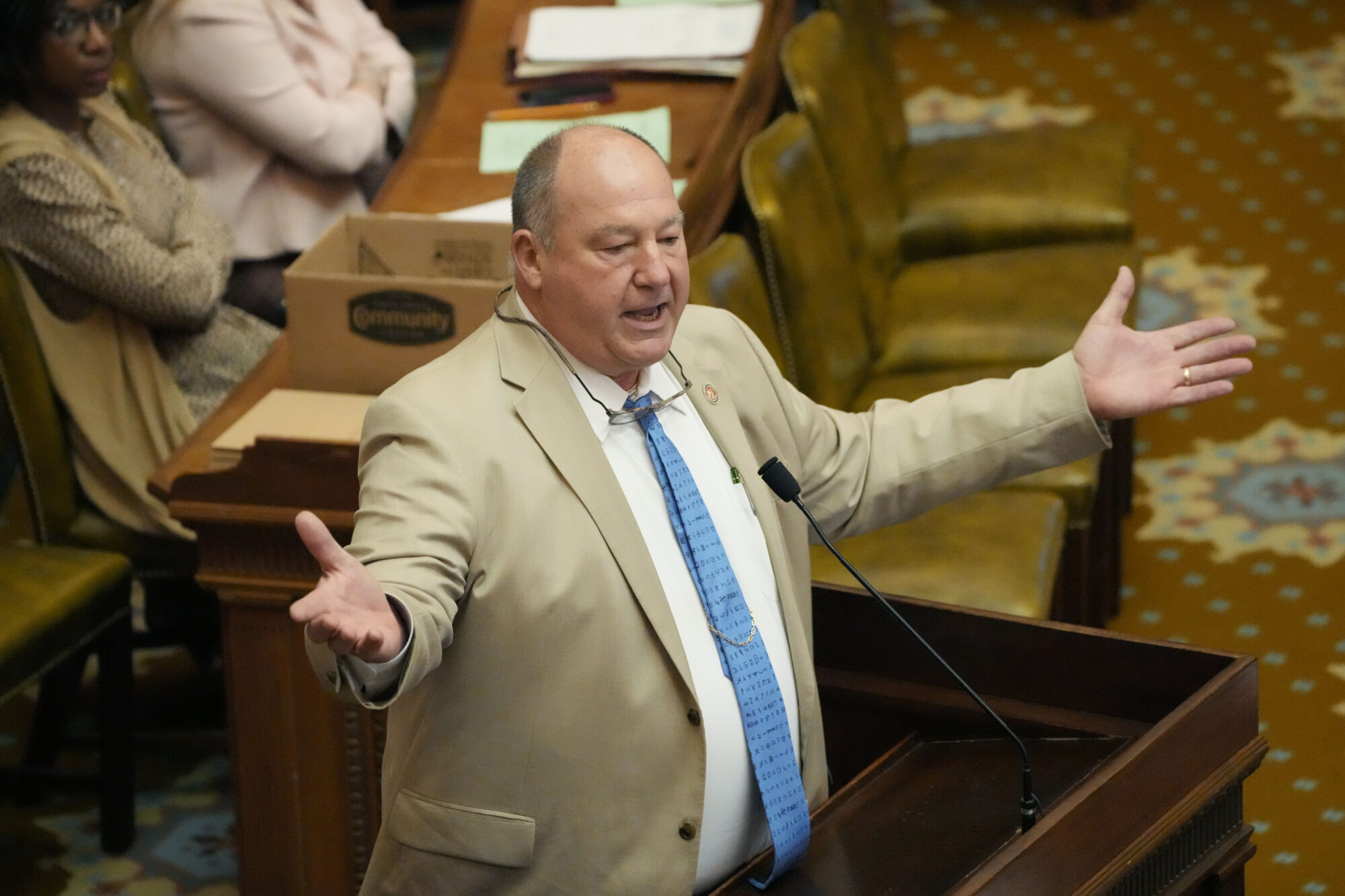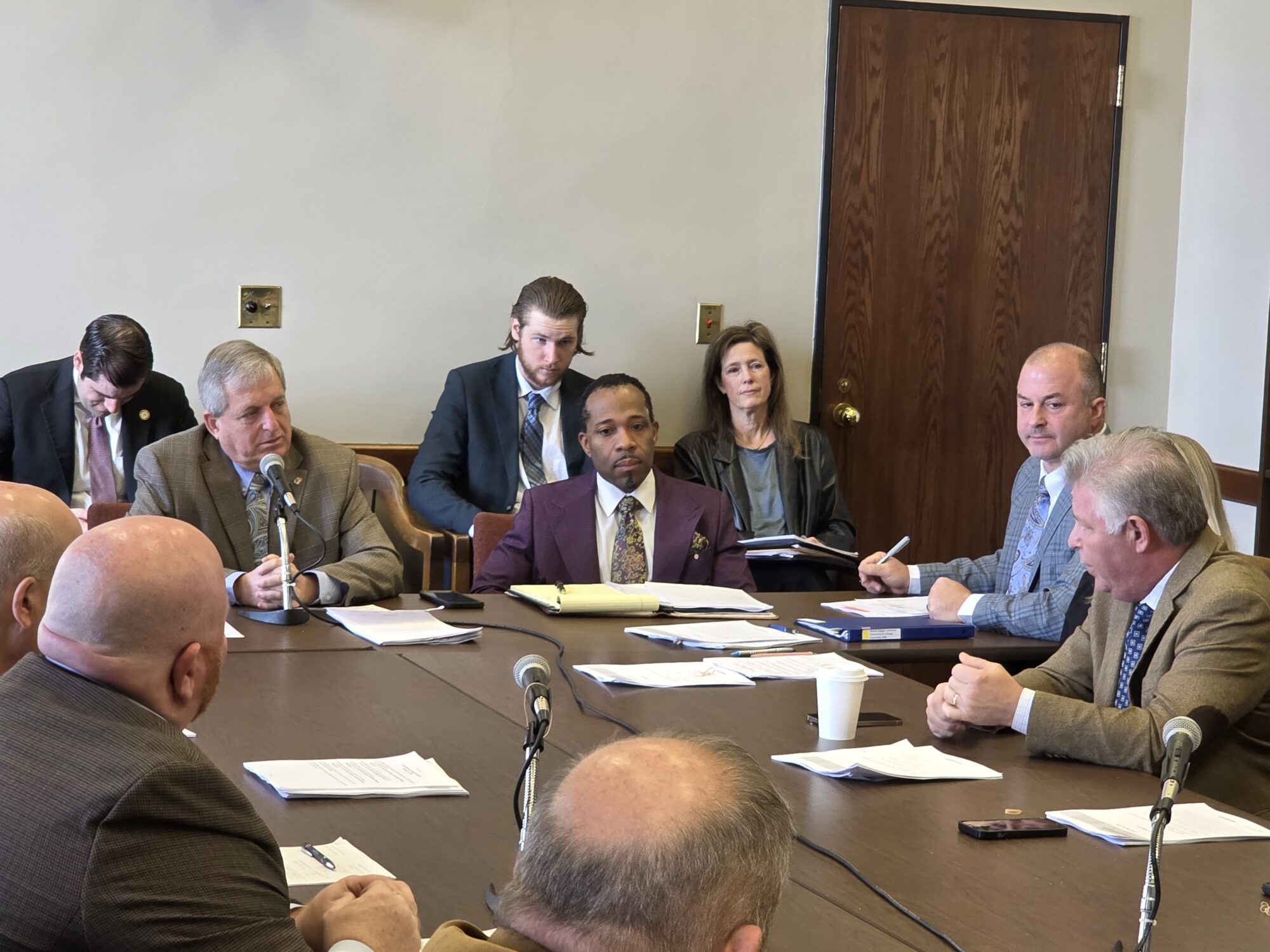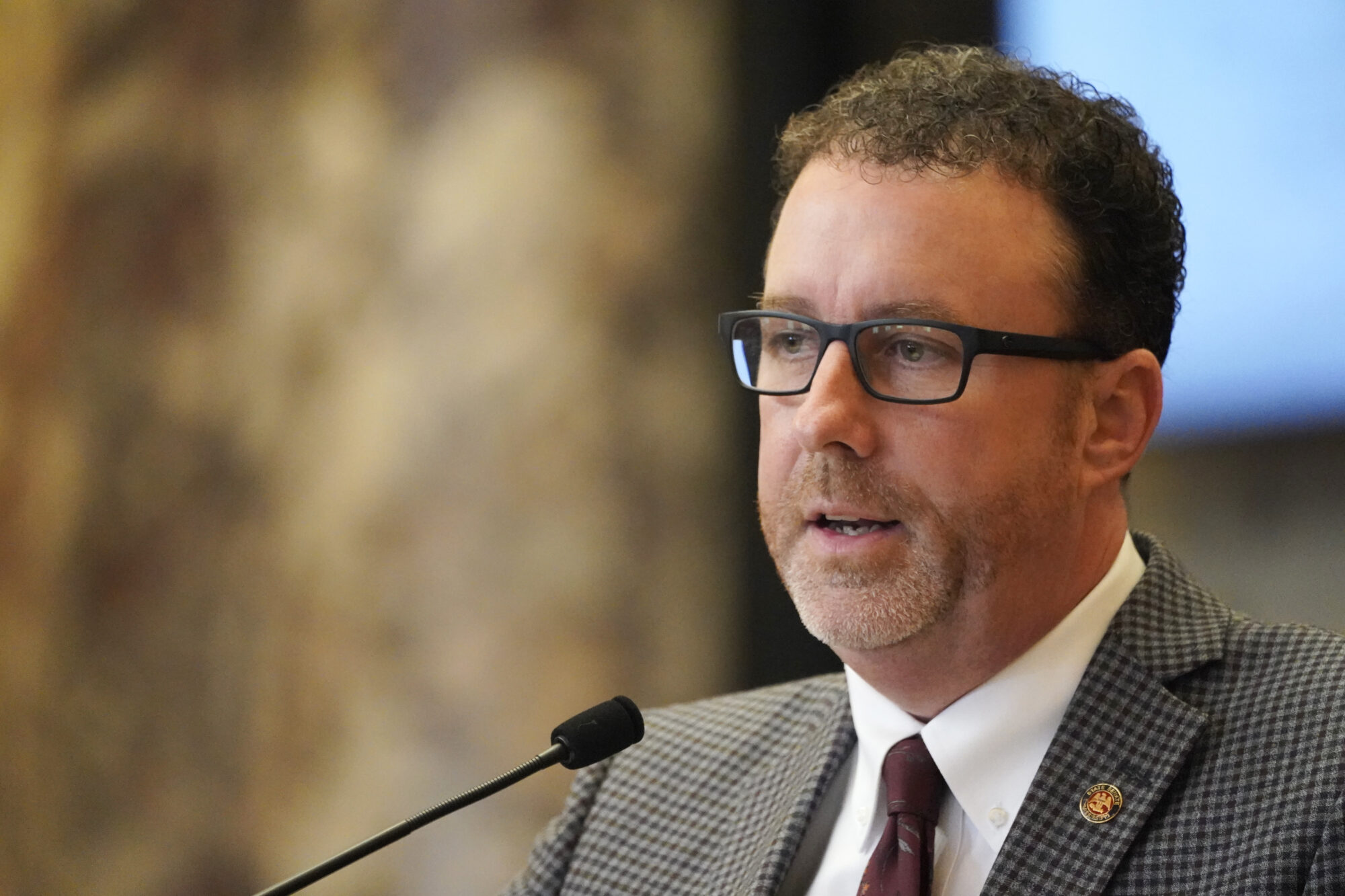
Rep. Price Wallace, R-Mendenhall speaks in support of the controversial Jackson Capitol Complex Improvement District bill in the House Chamber, Friday, March 31, 2023, at the Capitol in Jackson, Miss. The measure passed. (AP Photo/Rogelio V. Solis)
- Restoration of voting rights for those who have served their time was a topic of conversation with lawmakers prior to the start of the session, says State Rep. Price Wallace.
Legislation has been introduced in the Mississippi House of Representatives to restore the voting rights of those who were convicted of a non-violent crime and who have served their time and fulfilled their sentencing requirements.
In each bill, there is a five-year waiting period that starts at the completion of their sentence or probation, and the individual needs to meet all sentencing requirements such as paying fines and court fees.
At first, there was consideration of putting the time limit between three to eight years, but five years was the time frame agreed upon, according to State Rep. Price Wallace (R).
“I think if you’ve done your time, and it was a non-violent crime, you’ve done your time, you paid your dues, you paid all your fees associated, you should get your right to vote back,” Rep. Wallace said.
Wallace is the Chairman of the House Constitution Committee. He has worked with State Rep. Kabir Karriem (D) in authoring two of the bills up for consideration.
Restoration of voting rights was a topic of conversation with other lawmakers prior to the start of the current session, Rep. Wallace told Magnolia Tribune, and none seemed to be opposed. After being named Chairman of Constitution Committee, House Speaker Jason White (R) asked Wallace to work with Rep. Karriem on the bills Karriem authored – HCR 4 and HB 1609.
House Concurrent Resolution 4 would amend section 253 of the state’s Constitution to provide automatic restoration of suffrage to a person convicted of a non-violent crime after a period of five years from the completion of a sentence, probation and payment of restitution. House Bill 1609 requests that change under the state’s code and lists crimes that are exceptions to expungement, which include arson, armed robbery, carjacking, embezzlement of $5,000 or more, murder, rape, or statutory rape.
Chairman Wallace clarified restoration of voting rights under all bills currently submitted will not apply to those convicted as part of a federal case.
While the focus is on non-violent crimes, there are some crimes that could be considered non-violent that Wallace and State Rep. Kevin Horan (R), Chairman of House Judiciary B Committee, believe would not be applicable for restoring voting rights. As such they were listed as exceptions.
“If you look at the disenfranchising crimes, there are several on there that are non-violent crimes – bribery, bigamy, and it’s things like that, check forgery. The thing is somebody made a mistake early in life, they know they did. They served their time and now they’re out working, they might even have a family and they’re just trying to be a productive citizen. And they got this hanging over them,” Wallace explained. “Say they apply for a better job, they might not be able to get it because the employer looks at that record and says, ‘You were convicted of marijuana.’ They might have had a dime bag at a concert one night and got popped with it.”
Under HB 1609, such an individual’s voting rights would be restored automatically after five years and when they satisfy the sentencing requirements of the conviction.
“For purposes of this act, the term ‘automatically’ means initiated by the court in which the conviction was had, and without requiring a petition by the person who was convicted,” the bill states.
Restoration of voting rights under HB 1609 will include expungement of the conviction from the Mississippi Central Criminal Database within 45 days of receiving the certified copy of the order of expunction from the circuit clerk’s office, who will then forward it to the Mississippi Criminal Information Center at the state’s Department of Public Safety. A non-public record will be maintained to ensure the court can determine the habitual offender status of the person, should they be convicted of a subsequent crime.
HB 1445, authored by Rep. Horan, focuses on first time offenders. Crimes not valid for expunction under this bill include arson, trafficking of a controlled substance, third or subsequent DUI offenses, convicted felon in possession of a firearm, failure to register as a sex offender, voyeurism, witness intimidation, abuse/neglect or exploitation of a vulnerable person and embezzlement. Under this bill, a non-public record will also be retained by the Mississippi Criminal Information Center to determine, if upon future offense, the justice system can determine if the person is a first-time offender.
HB 1445 bill will require a person to submit a petition to the circuit clerk’s office for expungement.
Under House Bills 1609 and 1445, expungement will only be provided once.
“To have your record expunged, there is going to be a five-year waiting period. I mean you’re going to have five years to show society that ‘I messed up, I know I did but I’m trying to make things right,'” Rep. Wallace explained. “And then at the end of five years, they’ll go to the circuit clerk’s office and fill out some paperwork, go before the judge and the judge will determine, ‘Yes this person has done their five-year time, they done their sentence, every thing’s good.'”
State Rep. Horan says he and Wallace have met several times about these suffrage issues.
“Our goal is to move forward with a commonsense approach to restoration of voting rights legislation. I anticipate language that provides an opportunity for certain non-violent offenders to be restored automatically while others will have to go through the legal system to prove their fitness after a certain time period from expiration of sentence,” Horan elaborated. “Chairman Wallace and I agree that any offender convicted of a crime in violation of the public trust should not be included.”
HCR 4 and HB 1445 were referred to both Wallace and Horan’s Committees while HB 1609 was referred to only to the Constitution Committee. All three bills await committee action.











